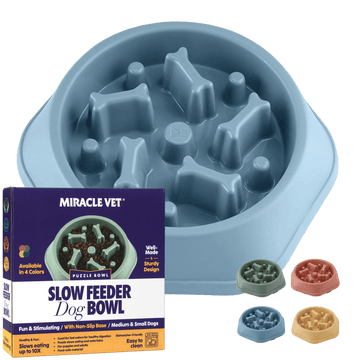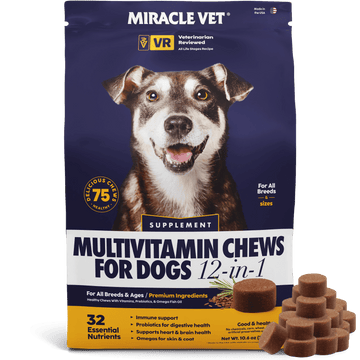Caring for a cat with kidney disease may feel overwhelming, but here at Miracle Vet we have all the information you need to understand your cat and how to look after them.
Kidney disease can be quite common in cats, especially older cats, kidney disease and kidney failure can affect up to 1 in 4 cats. If your cat is over 15 years old then the likelihood of developing kidney problems increases to 50%.
Why is Kidney Disease so common in Cats?
Chronic Kidney Disease (CKD) is said to be more common in cats because as a species they are born with fewer nephrons than other animals. Nephrons are filtering units that remove toxins and waste from the blood.
Cats are born with around 200,000 nephrons in each kidney, but compared to a human who would typically have 1 million nephrons in each kidney this is significantly less.
As we grow older we lose these nephrons and as a cat grows older they do as well which means that they may run out much faster than us or another animal and be more prone to CKD.
What are the symptoms of Kidney Disease in Cats?
Your cat cannot tell you if they are unwell but you will be able to look out for these tell tell signs that they may have a kidney infection or condition. If your cat has any of these symptoms you will need to get them seen by their Vet.
- Drinking more
- Eating less
- Losing weight
- Sleeping more
- Urinating more
- Dehydration (if you gently pinch their fur it should go back normally, if not this is a sign of dehydration)
- Bad Breath
- Vomiting or Diarrhea
Kidney failure in cats will be diagnosed by your Veterinarian who will do a blood test which will test for imbalances in the urea, creatinine, phosphates and electrolytes. Blood tests using these markers are only able to detect kidney failure when the kidneys are underperforming by 66% or more.
Your vet may also ask you to collect a urine sample from your cat before your appointment and may try to check your cat's blood pressure. When kidneys are not working well you can often retain salt in the blood which can cause high blood pressure.
Ultrasound scans or an X ray can detect tumors, polycystic kidneys or kidney stones which may help diagnose and make sure the Vet is advising the correct treatment and management of your cat's condition.
Can you treat Kidney Disease in Cats?
There can be many reasons for kidney failure in cats, it can be brought on by trauma, heart failure, blockage such as kidney stones. It may be down to old age or an infection, and some cats are born with a congenital defect that can cause kidney failure. Identifying the probable cause will help identify treatment.
Acute Renal Failure (ARF) can be treated in an animal hospital by flushing out the toxins using a drip. This can balance the electrolytes and with specific treatments such as antibiotics or anti sickness medication your cat can easily make a full recovery.
With CKD your cat will most likely need to have a specialized diet to avoid excess strain on the kidneys. This will mean a lower protein diet and also lower in phosphates.
If your cat has lost their appetite and lost a lot of weight we recommend Miracle Vet weight gain liquid to help them gain weight and regain their appetite after treatment and acute weight loss. Your cat will find the liquid easier to consume whist in recovery. Once your cat starts eating on their own again you may want to help them with our high calorie chews, be careful to keep an eye on their weight as if they become overweight this will put a strain on their kidneys. The low protein food must be prescribed by your own vet.
Some vets will prescribe medication for your cat, angiotensin blockers can reduce your cat’s blood pressure, potassium supplements may be prescribed and also appetite stimulators. Your Vet will be able to talk through the different medications and why they have been prescribed for your cat.
How to Prevent Kidney Disease in Cats
Whilst you cannot predict if your cat will get a kidney infection or kidney disease later in life you can put measures in place to keep them healthy.
Keep your cats weight healthy
Being overweight or obese can put extra strain on a cat's kidneys and other organs, you should always try to keep your cat within a healthy weight range for their breed. By monitoring their diet and weight and encouraging exercise you can keep your cat healthy. If you feel your cat is becoming overweight then try our natural weight loss liquid.
Visit your Veterinarian regularly
Your veterinarian will be able to see any slow changes in your cat that may indicate a health condition so seeing your vet regularly may mean the difference between an early diagnosis and a late one. The sooner your cat can start treatment or be moved onto a special diet the better it will be for them.
Keep toxins away from your cat
Toxins and poisons will put a strain on your cat's kidneys and exposure could put them into acute kidney failure. Some toxins are so severe the damage may be too much for your kitty but even a mild exposure could put undue strain on your cat and cause long term damage or reoccurring issues.
Toxins that are poisonous to cats include:
- Plants (Lilies)
- Household cleaners
- Dog medications (such as tick repellants)
- Onions, Garlic and chives
- Raisins and Grapes
- Human medications (antidepressants, aspirins, ibuprofen)
Keep a clean cat tray
Encouraging your cat to urinate will keep their kidneys healthy, a dirty cat tray may stop them from wanting to urinate.
Give them plenty of water
Make sure they always have access to water so they can keep hydrated, some cats like a water fountain as they like fresh running water, this may also include the toilet so having a ready supply of water is encouraged.
Include wet food or liquid in their diet
If your cat is only eating dry food they may be missing out on opportunities to get more fluids in their diet, adding liquid supplements or wet food can help them stay healthy.








